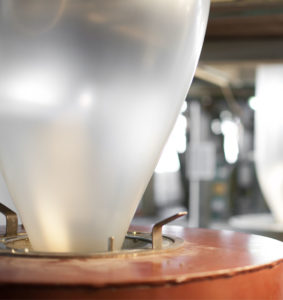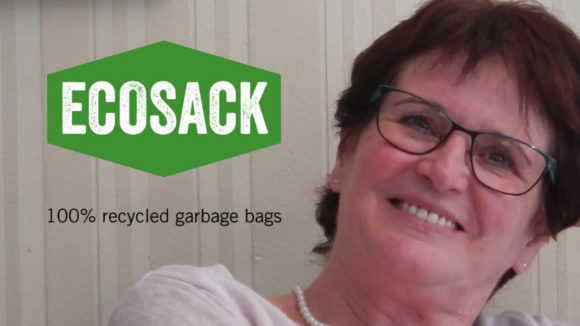Your Impact
Financing period: 28.09.2018 to 06.11.2018
With your help we have supported the EcoSack project as follows:
-
Financial
At the request of its founders, we did not support the EcoSack project financially, but purely through network work (so that more money is available for the other projects).
-
Network
We voluntarily advised EcoSack on the B Corp certification and initiated a dialogue with the founders of Share. The aim here was to make the 1:1 principle, that with every purchased bin liner a solution contribution to plastic-free seas is made, marketable.
-
Media
Further storytelling about EcoSack and the question of how the team pursues their vision of a world without garbage in the seas is firmly planned as part of our future media work.
One more, one less
Why the Ecosack project makes garbage bags from garbage

Our crude oil. This lifeblood of our civilization, seemingly inexhaustible source of energy and resource for the manufacture of a variety of different products, such as sportswear, gasoline and chewing gum, is wasted. Because oil is also used to make our garbage bags, which we fill with garbage and then throw onto the garbage. The Ecosack project has set itself the goal of changing this system. “Marie-Luise Steffens (64), founder of the Ecosack project, explains: “Instead of oil, we only use plastic waste to make new bin liners.
It doesn’t sound entirely new, since the recycling system has been known in Germany since the introduction of the Green Dot in the 1990s. And yet 8% of the world’s oil production is still used to produce plastic. So it is not surprising to learn that we Germans consume 8 billion plastic bags per year, of which only every 10th is recycled. The rest is incinerated or dumped in landfills from where it reaches rivers and oceans. There they are crushed into small pieces, eaten by animals and end up in our blood via our food. But why haven’t we changed that so far?
“The challenge was to produce thin films for bin liners,” explains Steffens. Thick low-density polyethylene (LDPE) films have long been made from recycled material, but for our home, kitchen, bathroom or office we use bags made from thin films (high-density polyethylene; HDPE). Until now, this film could only be produced from primary material, i.e. crude oil. “With a new process, we can now produce an LDPE film as thin as HDPE,” says Steffens, “and produce home bin liners that are 100% recycled.” Any bag produced in this way would mean one less in the oceans. At the same time, a new closure would reduce production waste to a minimum, Steffens says. This leads to energy and indirectly further oil savings. After all, we need our elixir of life to make more meaningful things, don’t we?
More information:
Who is behind it?

Marie-Luise Steffens (64)
For more than 40 years the managing director of Nordio GmbH has been dealing with things such as lard, wooden houses, sauna scent concentrates, gloves, condoms, heaters, tiles and garbage bags. As an active advocate of justice in dealing with people and nature, she designed the first 100% recycled garbage bag range together with a long-standing partner company. “Because it stinks to me that we are still producing bin liners from crude oil,” says Steffens. She founded the Ecosack project in 2018 and has been managing it ever since.
Arne Knuckle (37)
The environmental activist is the contact person for journalists. The Social Impact Alumni and founder of a social enterprise has a goal with Ecosack: “In seven years not a garbage bag will be sold in Germany which was produced from crude oil”. He works as a project manager at Ecosack.
Why chosen

Marie-Luise Steffens is a remarkable person. In the environment of the Social Enterprise scene, the number of female founders Ü60 is infinitesimally small. All the more refreshing the energy and life experience with which she closes a gap in our consumer goods sector. Who knew that almost all household waste bags are still made from crude oil instead of – as is obvious – used plastic waste.
With Arne Knöchel, she has gained a comrade-in-arms whom we trust will be able to develop Ecosack even more strongly into a company that continues to merge Profit & Purpose. We are excited about the plan to use production to develop distribution channels for plastic waste that is fished from the sea, and perhaps also to support initiatives such as the Ocean Clean-up Project with the sale of each garbage bag, thus involving millions of customers as part of the solution.
Video
We love this video. Anyone who suspects a bland team after the first few seconds will be taught a better lesson. 100% power and emotions are behind this project:
Your Feedback
How do you like the project? Give us feedback!


